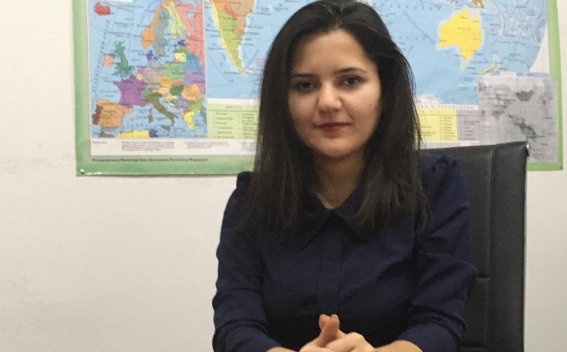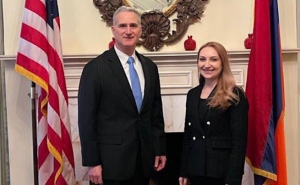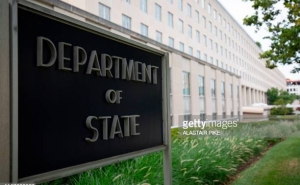 The US Will Be More Interested in Having Success Stories in Our Region: Liana Hovhannisyan (EXCLUSIVE)
The US Will Be More Interested in Having Success Stories in Our Region: Liana Hovhannisyan (EXCLUSIVE)

"Armedia" IAA presents an interview with an expert of "Insight" Analytical Center for Applied Policy and Research, Liana Hovhannisyan, concerning the new US administration, the changes under Donald Trump and the new priorities of the US foreign policy.
- Donald Trump’s victory in the presidential elections was somehow shocking not only for the US but also for the whole world. What do you think why was this the case?
Such a reaction is conditioned by several factors. I will bring the main ones.
First, Donald Trump, as a politician, as described in the West, is not politically correct. It is no coincidence that the Western media called him “the most unconventional” US president. For example, we know that, as a rule, politicians follow the so-called diplomatic ethics and refrain from expressing an opinion on many issues. In contrast, US President Donald Trump often feels himself free to”call things by their names”.
Second, Donald Trump’s victory broke a number of stereotypes. For example, US presidents, as accepted in the US political experience, are required to have passed a long political career, holding a variety of positions and gradually rising to the level of the president. Another example of this stereotype is the belief that the presidential elections cannot be won by a candidate who has no strong political ties with any of the two main US parties.
Third, Donald Trump has been an unpredictable politician. It should be noted that the newly elected US President came out against the announced principles and the main political directions of the US (a striking example of that was his position towards Russia in the background of anti-Russian sentiments in the West during the recent years, his migration policy, etc.).
Fourth, the Western media was trapped in its own net. Throughout the campaign, the majority of Western experts, journalists almost excluded Trump’s victory and infected society with their mood. But we had the completely opposite picture. The situation was the same in case of Brexit.
- Do you think during the new US president’s tenure we will witness a change in the US foreign policy and the tools being used?
- In order to answer this question one has to remember what were the main theses, Trump used throughout his campaign and continued to adhere to them after winning the election. Among those thesis I will distinguish the main two: the United States will take into account first of all its own interests in its policy and, second, the US will restore its respect among other countries.
From this we can draw the following conclusions:
First, US foreign policy will be based on direct agreements with other countries by the principle “what for what.” If this is projected, for example, on the US-EU relations, the US will put forward to its EU allies a very well-defined precondition: if want the US to ensure your safety, then consider what you are willing to give the United States instead.
Second, the US will continue its policy building not on imitation of values, but on interests. This itself means yielding from the US “soft power” principle often used in the past. In other words, if the US financial resources were directed mainly to the opposition forces in order to solve some problems, the basic agreements will now be reached with the authorities by the same “what for what” principle.
- What does it mean and is it good?
- It is positive in terms that there will be clearly defined rules and obligations. On the other hand, it is negative as the advancement of interests will be at the expense of values. The US has long been a traditional supporter of democratic values (at least on the level of statements). In this case a question arises, whether there will be any country that will be able to replace the United States.
- Against this background, what changes to expect in US policy towards its immediate neighbors, the major powers (Russia, China) and our region.
- As for its immediate neighbors, the US, I think, will continue to collaborate with them, but in this case there will be more clearly established arrangements. Here the United States will push forward its main interests, trying to serve them to the interests of its immediate neighbors as well.
The relations with power centers will be built on the principle of interaction, where one partner does not attempt to cross the red lines set by the other. At the same time, they will try to fight together against the common challenges.
Given that Trump seems to have a greater focus on the US domestic issues, he will weaken US active involvement in other regions. I believe that in case of our region as well he will leave the problems to the main players. At the same time, the US will continue to participate in those formats, involved previously, such as the OSCE Minsk Group format. The US interest to have success stories in the issues where it is directly involved, will increase. This is due to Trump’s desire to raise the US rating.
Other materials on this subject
- Turkey is sending Cold War-era cluster bombs to Ukraine – FP The weapons are designed to destroy tanks by bursting into smaller submunitions, which can linger on the battlefield for years if they do not immediately explode. Each round scatters about 88 bomblets.
- Los Angeles mayor and city council president address US president on Lachin corridor issue Thank you, Mayor Bass, for joining me in communicating to President Biden the urgent need for U.S. leadership to lift the blockade and bring humanitarian relief to the people of Artsakh.
- US Committed to Helping Armenia and Azerbaijan Resolve Issues Peacefully: Blinken Spoke With Pashinyan The Secretary reiterated our commitment to helping Armenia and Azerbaijan resolve issues peacefully.
- Iran to Submit Final Conclusion Over Nuclear Deal Revival by Midnight In comments on Monday, Amirabdollahian said Iran is going to send its final conclusion about the JCPOA talks to the European coordinator in written form at midnight.
- Erdogan, Biden Might Meet in September- Media Turkey plans to buy 40 F-16 fighter jets from the US and upgrade another eighty. US President Joe Biden stated that he expects to receive the approval of the [US] Congress to sell F-16 fighter jets to...
Other materials on this subject
- Around 25 Domestic Terrorism Cases Opened in US after Congress Storming About 25 cases of domestic terrorism were opened in the US following the unrest caused by supporters of US President Donald Trump in the Capitol building.
- Former New York City Mayor Mike Bloomberg Eyeing Presidential Bid He has not decided whether to run for president but is back to actively considering it and is taking this step to keep his options open.
- Putin: Trump Opponents Harm US with 'Invented' Russia Scandal Putin said the US opposition was not treating those who elected Mr. Trump with respect.
- Is Trump’s Replacement Realistic? However, how are the congressmen going to prove that Donald Trump is "incapacitated"?
- Will Putin-Trump Romance End Soon? ...to fully understand the logic of Trump’s policy towards Russia, it is helpful to get acquainted with the logic of deal-making introduced by Trump in his book entitled "The Art of the Deal'.
Other materials on this subject
- U.S. to remain very much engaged “to help bring about that end state” between Armenia and Azerbaijan We continue to maintain our commitment to promoting a secure, stable, democratic, prosperous, and peaceful future for the South Caucasus region.
- US Plans To Hire Adviser To "Counter Corruption" In Armenia, Who Can Receive From $91.5 Thousand to $134.3 Thousand Per Year The main goal of the bureau’s program ... in Armenia is to support the host state in developing an effective and transparent criminal justice sector that respects human rights and actively fights corruption
- Senate Appropriations Committee 2023 Bill Reaffirms $2 Million In Demining Assistance To Artsakh Specifically, the Committee Report stated that “up to $2,000,000 for humanitarian demining and unexploded ordnance [UXO] clearance activities in areas affected by fighting in the Nagorno-Karabakh conflict,...
- Biden’s Nominee For U.S. Ambassador to Armenia Sent to Senate Kristina Kvien arrived at U.S. Embassy Kyiv in May 2019. From 2016 – April 2019, she served as Acting DCM/Minister Counselor for Economic Affairs at U.S. Embassy Paris.
- US Welcomes First Meeting of Armenian, Azerbaijani Border Commissions: Blinken The U.S. supports the EU-brokered conversations between Azerbaijan and Armenia and encourages continued positive momentum and bilateral dialogue
-
 17:08
17:08The regular session of the Anti-corruption Policy Council takes place in Jermuk
-
 15:05
15:05The Prime Minister sends congratulatory messages to the supreme leader of Iran and the President of Iran
-
 11:11
11:11Armenia sends earthquake aid to Turkey
-
 10:43
10:43Commemoration of the Pontiff St. Sahak Partev
-
 09:16
09:16Some roads are closed and difficult to pass in Armenia
-
 19:55
19:55Phone conversation of the Foreign Minister of Armenia with the U.S. Assistant Secretary of State for European and Eurasian Affairs
-
 18:30
18:30Prime Minister Pashinyan and President Khachaturyan meet
-
 18:20
18:20Ararat Mirzoyan with Co-Chairman of the OSCE Minsk Group of France Brice Roquefeuil
-
 17:01
17:01Humans could land on Mars within 10 years, Musk predicts
-
 16:45
16:45France, US urge 'immediate' end to Nagorno Karabakh blockade
-
 16:01
16:01Blockaded Nagorno Karabakh launches fundraiser to support quake-hit Syria
-
 15:59
15:59Earthquake death toll in Turkey rises to 18,342
-
 15:43
15:43Ararat Mirzoyan Held a Telephone Conversation with Sergey Lavrov
-
 15:06
15:06French president rules out fighter jet supplies to Ukraine in near future
-
 14:47
14:475 Day Weather Forecast in Armenia
-
 14:44
14:44President Vahagn Khachaturyan wrote a note in the book of condolences opened in the Embassy of Syria in Armenia
-
 14:20
14:20Azerbaijan’s provocations impede establishment of peace and stability – Armenian FM tells Russian Co-Chair of OSCE MG
-
 12:57
12:57France representation to OSCE: Paris calls on Azerbaijan to restore freedom of movement through Lachin corridor
-
 11:40
11:40Command of Kosovo forces highly appreciated preparation of Armenian peacekeepers
-
 10:16
10:16The United States withdrew from sanctions against Syria for six months the provision of assistance after the earthquake
day
week
month
Humidity: %
Wind: km/h









